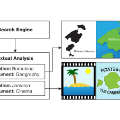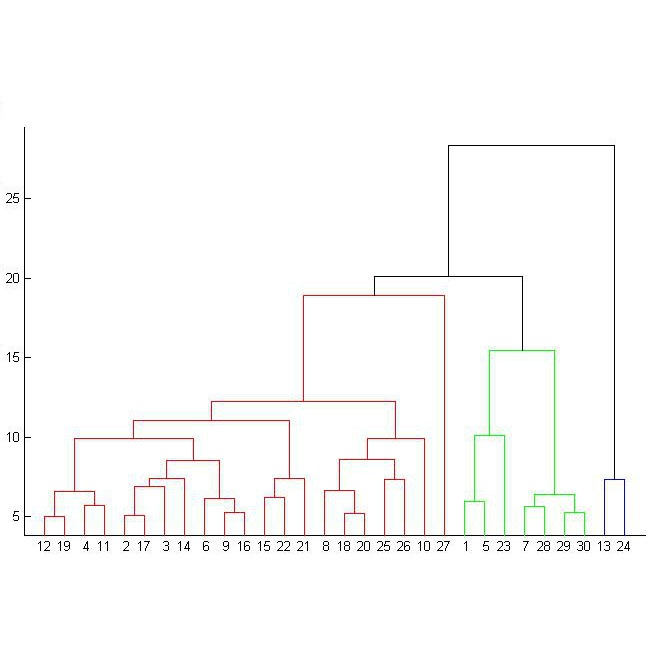Uncertainties from experiments and models render multi-modal difficulties in model calibrations. Bayesian inference and \textsc{mcmc} algorithm have been applied to obtain posterior distributions of model parameters upon uncertainty. However, multi-modality leads to difficulty in convergence criterion of parallel \textsc{mcmc} sampling chains. The commonly applied $\widehat{R}$ diagnostic does not behave well when multiple sampling chains are evolving to different modes. Both partitional and hierarchical clustering methods has been combined to the traditional $\widehat{R}$ diagnostic to deal with sampling of target distributions that are rough and multi-modal. It is observed that the distributions of binding parameters and pore diffusion of particle parameters are multi-modal. Therefore, the steric mass-action model used to describe ion-exchange effects of the model protein, lysozyme, on the \textsc{sp} Sepharose \textsc{ff} stationary phase might not be fully capable in certain experimental conditions, as model uncertainty from steric mass-action would result in multi-modality.
翻译:实验和模型的不确定性使得模型校准存在多种模式的困难。 已经应用了贝叶斯式的推断法和\ textsc{mcmc}算法,以便在不确定的情况下获得模型参数的后方分布。 但是,多式化导致平行的\ textsc{mcmc}取样链的趋同标准存在困难。 当多个取样链演变为不同模式时,通常应用的 $\ loyhat{R} 诊断方法并不好。 分区和等级组群方法已经与传统的 $( 全域){R} 和$( Textsc{mcmc} 标准级组群集方法结合起来, 来处理粗糙和多式目标分布的抽样。 人们发现, 捆绑参数的分布和粒子参数的孔径分布是多式的。 因此, 用于描述模型蛋白质的电离交换效应的分子大规模行动模型模型, 淋巴兹梅, 在某些实验条件下可能无法完全胜任, 因为在多式的状态下,, 从大规模动作中模型的不确定性将导致多式。




